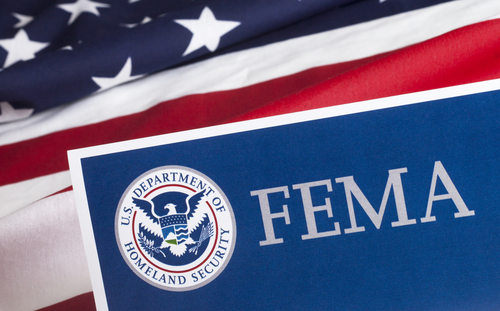
Even as disaster relief continued on Puerto Rico, Florida, and others in the wake of Hurricane Ian, Federal Emergency Management Agency (FEMA) reservists gained new job protections last week with the passage of the Civilian Reservist Emergency Workforce Act.
Authored by U.S. Sens. Gary Peters (D-MI) and Rob Portman (R-OH), the new law protects reservists – temporary, on-call helpers with FEMA during times of crisis – from being fired from full-time employment for leaving to perform their disaster response duties. This, proponents of the change argued, made it difficult to recruit and retain such help for FEMA due to fears of losing work.
While similar protections were already on the books for reservists of the U.S. military, no such provisions had ever been extended to FEMA helpers. Nevertheless, such workers are critical to FEMA operations.
“FEMA Reservists are essential to ensuring the federal government can aid communities that have been hit by natural disasters and other emergencies,” Peters said. “These dedicated employees need our support as they help people rebuild and recover following extreme weather events like floods and hurricanes. Now that President Biden has signed this commonsense, bipartisan bill into law – FEMA Reservists will no longer have to risk their livelihoods when being called up to respond to a disaster.”
Backing up Peters and Portman in the House were U.S. Reps. Dina Titus (D-NV) and John Katko (R-NY).
“I am honored to celebrate the enactment of the Civilian Reservist Emergency Workforce Act. When disaster strikes, FEMA Reservists are often required to deploy at a moment’s notice,” Katko said. “But under current law, FEMA Reservists do not receive important protections that prevent them from losing their full-time employment. I helped introduce this bipartisan bill to protect FEMA Reservists and ensure they do not have to choose between their careers and responding to a disaster.”
The new protections come at a time of record numbers of natural disasters, which only seem to be picking up pace as time goes on. The introduction of the legislation followed hearings on the response to the COVID-19 pandemic, for example, and how the government could work to improve matters for the future.




